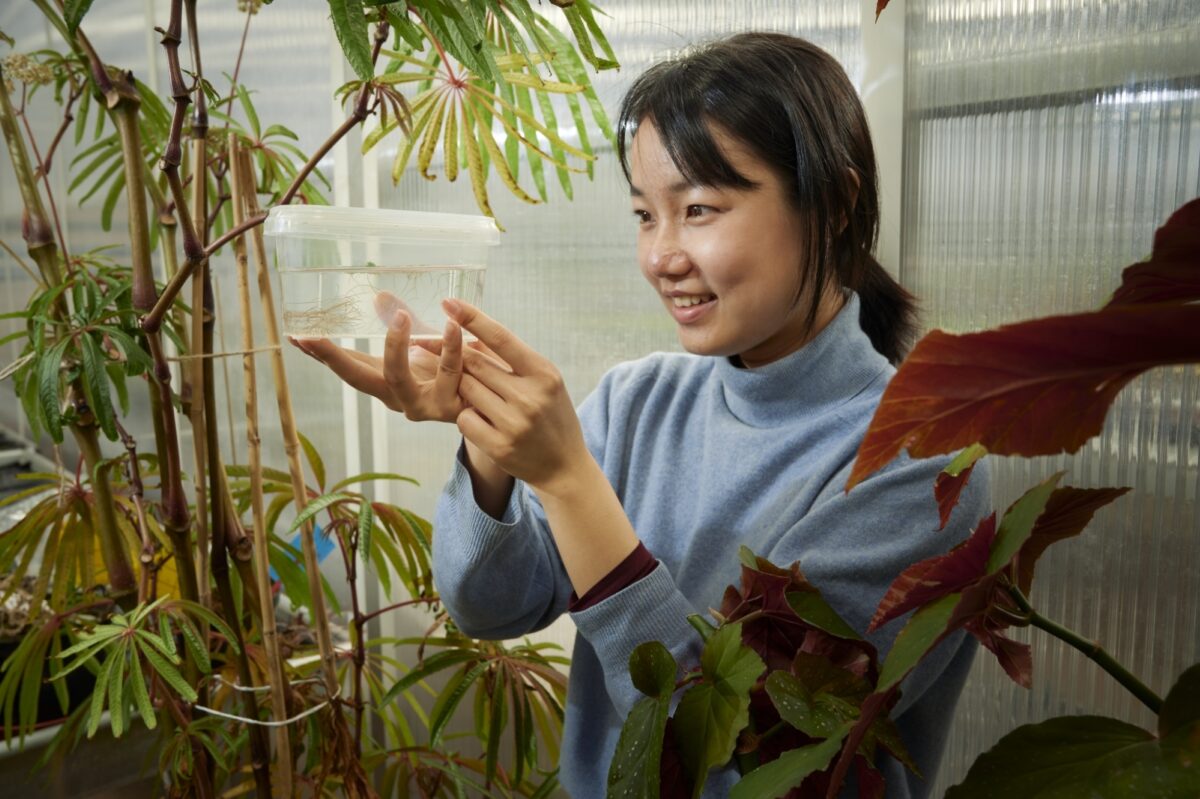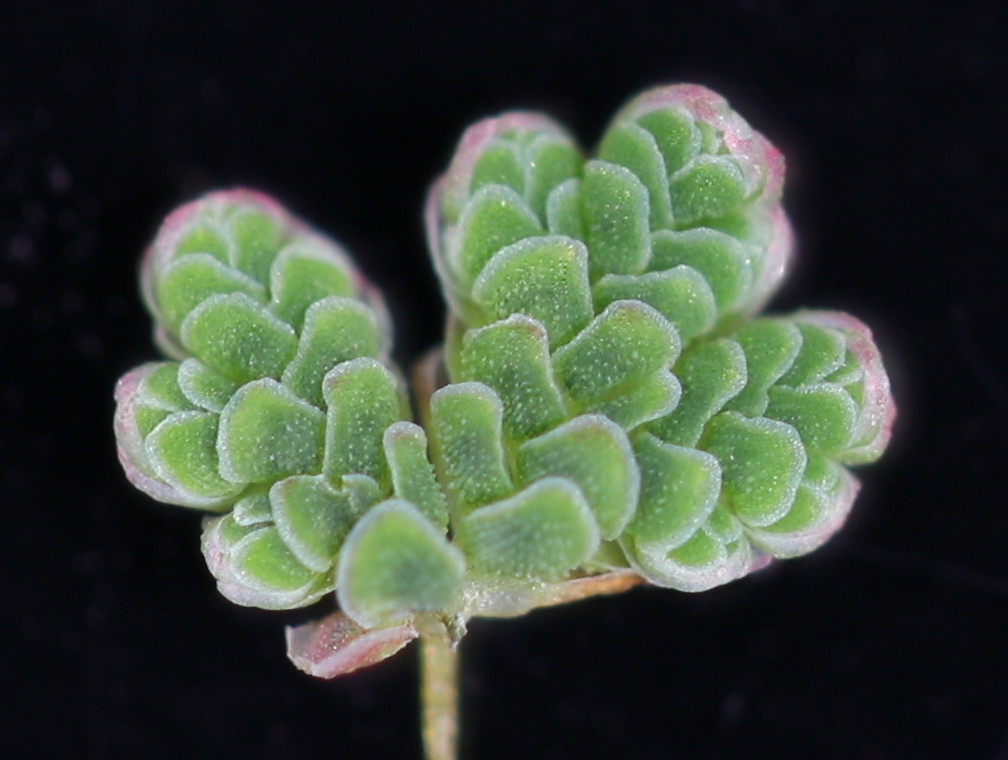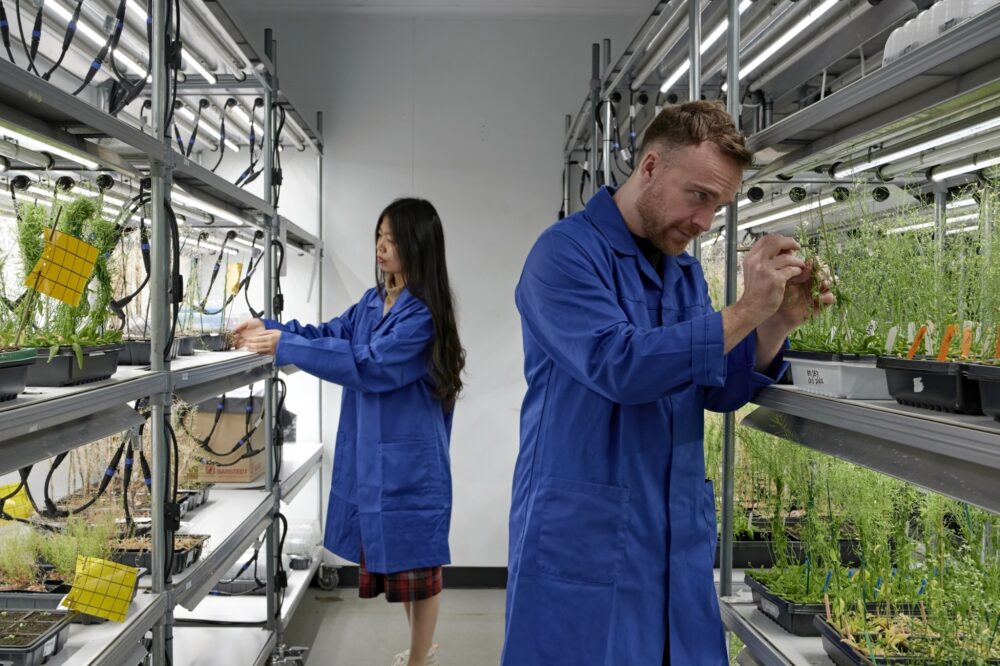

The Edinburgh Plant Growth facility helps researchers to understand sugar transport in plants
The development of phloem tissue in plants was a key evolutionary step enabling sugar transport and larger and more complex plant forms. Dr Sandy Hetherington and Zishan Fu are investigating the origin and evolution of the phloem in early-diverging groups of vascular plants such as ferns, to determine how phloem structure has changed over time.
The Edinburgh Plant Growth facility identified potential sources of Azolla filiculoides, provided advice and support on the correct risk assessments and standard operating procedures for working with the species, and finally established the optimal growth conditions for the plants. With their help A. filiculoides is growing in the plant growth facility to facilitate studies of the phloem. A. filiculoides is one of only three ferns that has had its genome sequenced which enables a genetic analysis of the structure and function of the phloem and its evolution.

Macro photo of Azolla by Zishan Fu
Alongside the evolutionary conclusions that can be drawn from investigating A. filiculoides, the species has also been described as a “super-plant”. A. filiculoides in partnership with its symbiont cyanobacteria has incredibly rapid growth and is already used as biofertiliser, food for livestock, and has been proposed as a potential means for combatting climate change due to its ability to sequester CO2 from the atmosphere.
Further research is planned to fully understand the evolution of the phloem in A. filiculoides and the sugar transport system that underpins this super-plant.

The Edinburgh Plant Growth Facility
Specialisms
Facilities available
Current facilities for plant growth include a standard glasshouse, controlled environment rooms, Grodome, growth cabinets and tissue culture rooms. We have standardised our light sources to LED daylight spectrums throughout the facility.
Tissue Culture Facility
Facilities for the maintenance and propagation of plant tissue culture:
Controlled Environment rooms and cabinets
The Grodome
The Grodome is a containment glasshouse with a small header room attached. There are five chambers, one which is primarily used for growing transgenic plants and for research into plant pathogens.
Glasshouse
One heated glasshouse with a total bench surface of 134m² including 3m² of an automated misting unit. Temperature and day length are regulated through a BMS control system. Light levels in the heated glasshouse are ~150μmol/m²/s at bench height.
The plant growth facility can provide the following services:
More details
Dr Sophie Haupt. Facility Manager
Sophie.Haupt@ed.ac.uk

Discover the University of Edinburgh's expert Genotype to Phenotype facilities. Our technical experts will help your team make new discoveries and translational developments from genotype to phenotype. Our specialist support will guide you through the journey every step of the way.